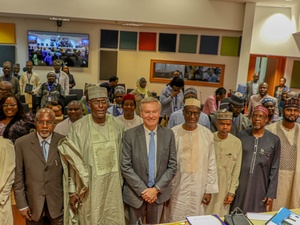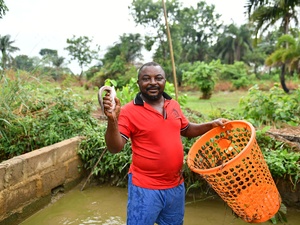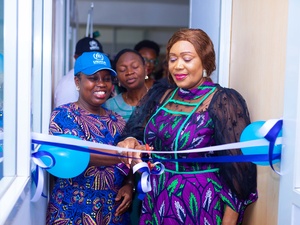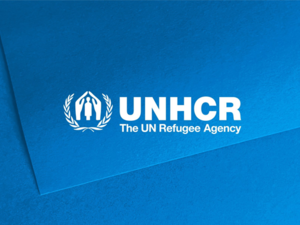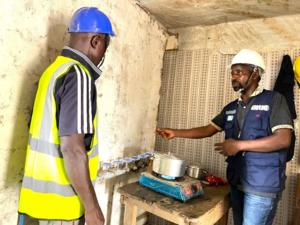Sebastien’s Journey of Hope and Self-reliance.

Sebastien’s Journey of Hope and Self-reliance.
Six years ago, an ordinary day in Sabestien's life took an unexpected turn. A seemingly peaceful demonstration in his Tinta hometown, in Akwaya Subdivision of Cameroon quickly descended into turmoil.
"Out of nowhere, the demonstration spiralled into chaos, with gunshots resulting in two fatalities and several injuries," Sebastien, a 20-year-old Cameroonian refugee, recalls. "My entire family and I found ourselves scattered in different directions in the ensuing bedlam," he narrates.
After several days of trudging through the forest with scant food, Sebastien arrived in a border community in Nigeria's Cross River State (CRS). He was reunited with his parents at this point. Soon after, the UNHCR (United Nations High Commissioner for Refugees) facilitated their relocation to the Ikyogen refugee settlement in Benue State, where they began rebuilding their lives.
Sebastien and his family relied heavily on humanitarian aid in the beginning. However, in 2021, UNHCR identified Sebastien for a vocational training opportunity in poultry farming, which he deeply values.
Embracing poultry farming for self-reliance
Poultry farming has become a popular career option for young people in the community, such as Sebastien. The relatively low start-up capital required, particularly with the assistance of organisations such as UNHCR providing starter kits, makes it an accessible venture. "I've been interested in poultry farming since I was a child. "This is my passion, and I have no regrets," Sebastien smiles.
He began his journey into poultry farming with a starter kit that included 80 birds, feeders, medications, a charcoal stove, and assistance building a chicken pen. Despite his lack of prior experience in poultry farming, Sebastien has maintained a 100% survival rate for his birds and restocked his farm three times in the previous year, earning a significant profit.
Chickens' rapid maturation rates ensure a consistent supply of produce, resulting in a consistent income stream. "This business has proven to be the most profitable in the neighbourhood." Customers from CRS and other Benue State communities frequent my farm," he says. "A typical chicken sells for around 3,500 Naira."

Sebastien have a renewed sense of hope and have begun to rebuild his lives with his poultry business.
Sebastien has become one of the most successful poultry farmers in the refugee community as a result of his dedication and zeal. He intends to use his earnings to expand his farm and open a provision store to supplement his family's income. The flexibility of poultry farming, which allows young people to balance other responsibilities or interests, such as education, adds to its appeal, making it a popular choice for many.
Beyond farming, in pursuit of an education
Sebastien's ambition is to become a lawyer in addition to his agricultural pursuits. School closures in Cameroon cut his education short, leaving him with only junior secondary schooling. However, with the assistance of UNHCR and its partners, he was able to enrol in and pass secondary school examinations.
While Sebastien's story is full of hope and resilience, it also highlights the need for more scholarship opportunities for refugees. Currently, refugee educational opportunities are dismal; only about 1% of eligible refugees attend tertiary education. Increased scholarship opportunities would increase access to postsecondary education and help refugees secure better futures for themselves and their communities.



